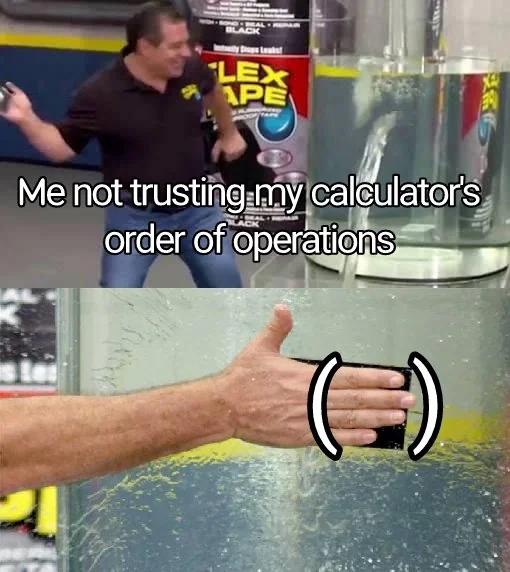this post was submitted on 03 Apr 2024
1280 points (98.8% liked)
Science Memes
11970 readers
1942 users here now
Welcome to c/science_memes @ Mander.xyz!
A place for majestic STEMLORD peacocking, as well as memes about the realities of working in a lab.

Rules
- Don't throw mud. Behave like an intellectual and remember the human.
- Keep it rooted (on topic).
- No spam.
- Infographics welcome, get schooled.
This is a science community. We use the Dawkins definition of meme.
Research Committee
Other Mander Communities
Science and Research
Biology and Life Sciences
- [email protected]
- [email protected]
- [email protected]
- [email protected]
- [email protected]
- [email protected]
- [email protected]
- [email protected]
- [email protected]
- [email protected]
- [email protected]
- [email protected]
- [email protected]
- [email protected]
- [email protected]
- [email protected]
- [email protected]
- [email protected]
- [email protected]
- [email protected]
- [email protected]
- [email protected]
- [email protected]
- [email protected]
- !reptiles and [email protected]
Physical Sciences
- [email protected]
- [email protected]
- [email protected]
- [email protected]
- [email protected]
- [email protected]
- [email protected]
- [email protected]
- [email protected]
Humanities and Social Sciences
Practical and Applied Sciences
- !exercise-and [email protected]
- [email protected]
- !self [email protected]
- [email protected]
- [email protected]
- [email protected]
Memes
Miscellaneous
founded 2 years ago
MODERATORS
you are viewing a single comment's thread
view the rest of the comments
view the rest of the comments

I've never seen a calculator that had bracket keys but didn't implement the conventional order of operations.
But anyway, I'm on Team RPN.
my dumb ass reading this: "Team rock paper nscissors"
RTS = rock taper scissors
FPS = frock paper scissors
https://plus.maths.org/content/pemdas-paradox
Even two casios won't give you the same answer:
https://plus.maths.org/content/sites/plus.maths.org/files/articles/2019/pemdas/calculators.png
Ah, I wasn't thinking of calculators that let you type in a full expression. When I was in school, only fancy graphing calculators had that feature. A typical scientific calculator didn't have juxtaposition, so you'd have to enter 6÷2(1+2) as 6÷2×(1+2), and you'd get 9 as the answer because ÷ and × have equal precedence and just go left to right.
That's not true
Well, more precisely you broke up the single term 2(1+2) into 2 terms - 2 and (1+2) - when you inserted the multiplication symbol, which sends the (1+2) from being in the denominator to being in the numerator. Terms are separated by operators and joined by grouping symbols.
I'm not sure what you're getting at with your source. I'm taking about physical, non-graphic scientific calculators from the 1990s.
Yep, exact same as the calculator in the linked thread. The expression entered was 6÷2(1+2).
There's no pemdas paradox, just people who have forgotten the order of operations rules
The one on the right is an old model. As far as I'm aware Casio no longer make any models that still give the wrong answer.
I've seen plenty